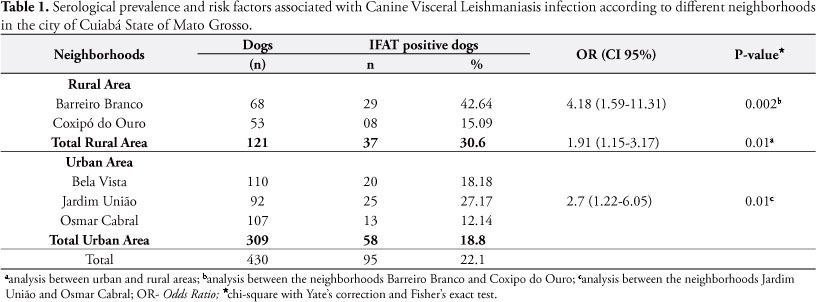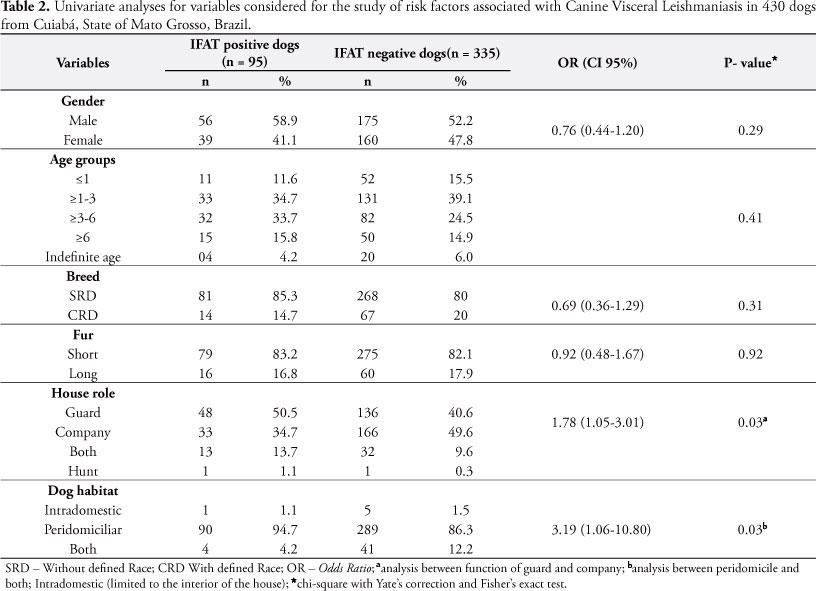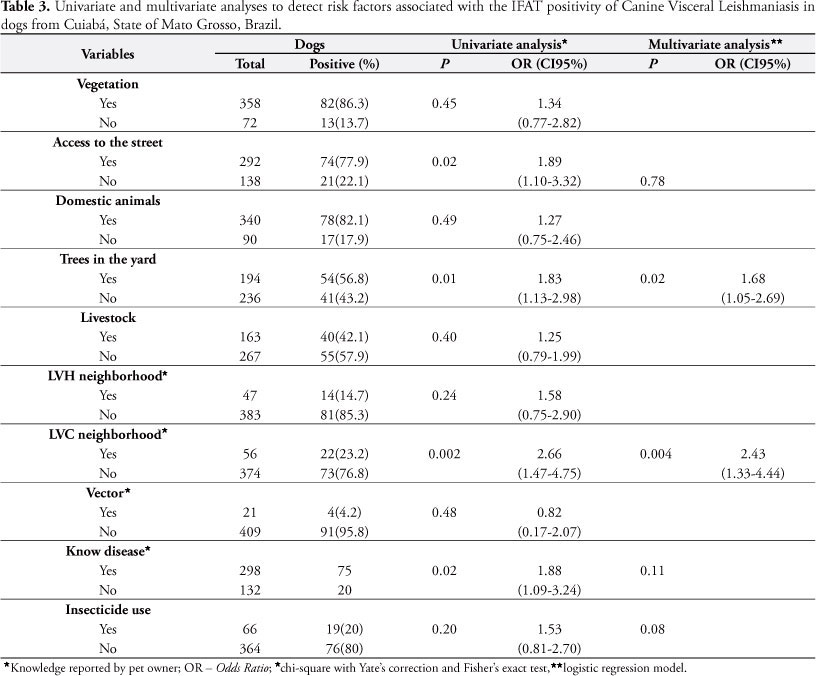In Brazil, canine visceral leishmaniasis (CVL) is endemic and the number of cases in humans and dogs has increased in the Midwest region. A transversal study was carried out in endemic areas from Cuiabá, State of Mato Grosso, to assess data on seroprevalence and risk factors associated to canine infection. Four hundred and thirty (430) dogs were randomly evaluated through indirect fluorescence antibody test (IFAT) considering variables related to the animals, the environment and the knowledge by owners on CVL aspects and control. From 430 dogs, 95 (22.1%) were seroreagent for leishmaniasis and animals living in rural environments present risk 1.9 times higher for acquiring the disease than those in urban environments (p = 0.01; OR 1.9). Factors related to animals' habits, such as free access to the street and guard function were considered indicators to predict infection by Leishmania sp. (p < 0.05) by statistical univariate analysis. The presence of agricultural activities was also a fact that contributed for the insurgence of the infection (p = 0.02; OR 1.68). The results contributed to the knowledge on the aspects of CVL in Cuiabá and point to an urgent need to include educational and sanitary programs in the city, since the region presents favorable characteristics for spreading the infection of CVL as already observed in other Brazilian cities.
Canine visceral leishmaniasis; dogs; risk factors; infection; Brazil



